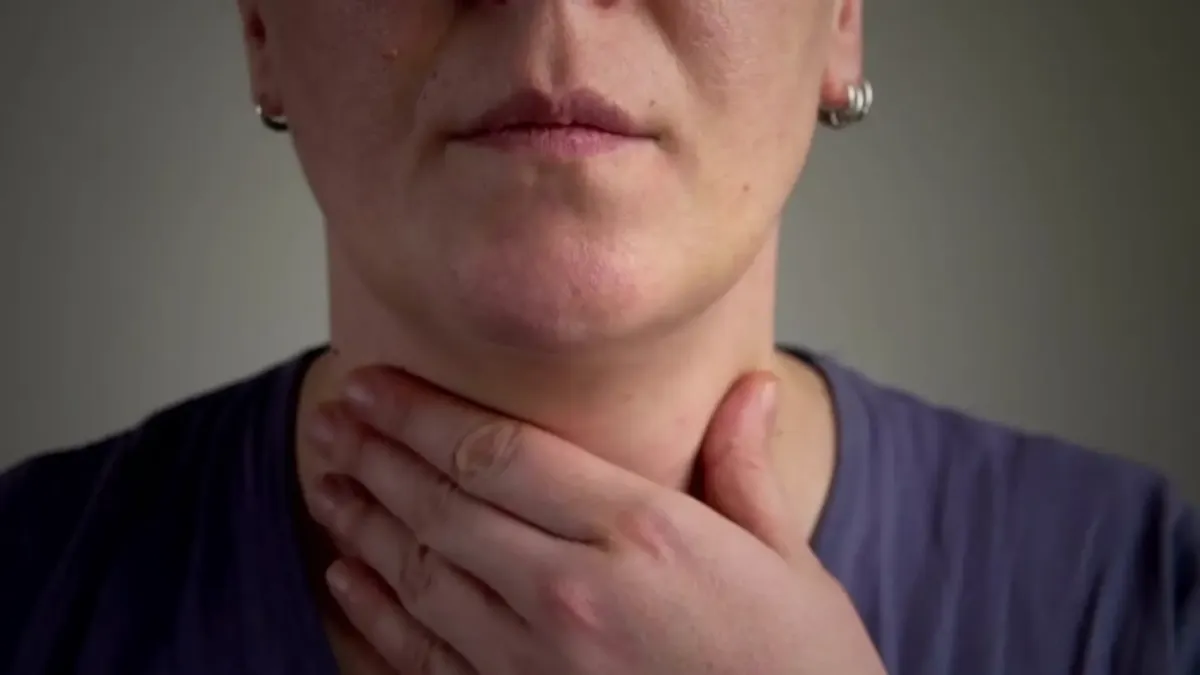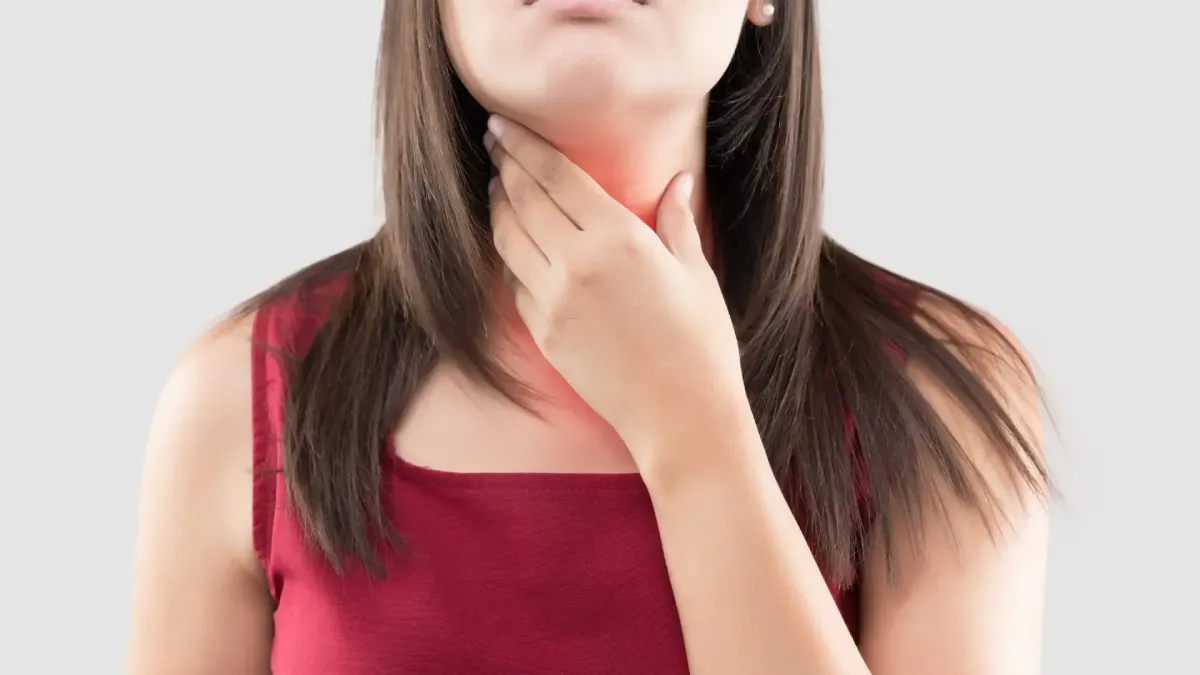MENU
BLOG

Treating Sex Hormone Imbalances
Sex hormones are that are involved in the regulation of sexual development and reproduction. The primary sex hormones are estrogen, progesterone, and testosterone. Men and women have all of these, just in different amounts and ratios...
When men and women have low energy caused by an imbalance in their sex hormones, it is usually from different hormones. For men, it is usually due to a testosterone deficiency. For women, it is usually due to estrogen and/or progesterone imbalances.

Sex Hormones & Low Energy
The symptoms of menopause are no joke. They are incredibly uncomfortable and can change the quality of your life significantly. When a woman comes to me with menopausal symptoms, she is usually pretty desperate for relief. I use both natural and pharmaceutical therapies to get her that relief.

Treating Thyroid Disease
I am a big believer in natural medicine. It can be very powerful and work very well. I prefer to use it as long as the natural treatment is safe and strong. Unfortunately, when treating low thyroid, we usually need both the natural and the prescription treatments. In college, I learned from playing the card game euchre not to “send a boy to do a man’s job.” In medicine, this means using the treatment that you know will work. If I think a natural treatment will work, but I know that a medication will work, I should use the medication as long as there are no significant side effects. This is because I want to make sure you get results right away so that you can get your life back

Treating Thyroid Disease
Thyroid disease is one of the most common health problems we face today. The majority of people with thyroid dysfunction have hypothyroidism. Hypothyroidism (“hypo” means low) is a condition where the amount of thyroid hormone in your body is less than what is needed for optimal function. According to the American Thyroid Association, more than 12 percent of the US population will develop a thyroid condition during their lifetimes, and more than half will be unaware that they have a problem. Women are five to eight times as likely as men to develop thyroid problems.

Advanced Adrenal Recommendations
Last week, I went over the recommended supplements to treat Adrenal Fatigue. This week I’ll go over adrenal recommendations as well as a plan to reduce stressors.
Treating the physical symptoms is only the first step. Once you start to feel better, it’s important to begin addressing the causes of the problem: the sources of stress that compromised your adrenals in the first place.

Testing & Supplement Options for Adrenal Fatigue
Last week we discussed the main symptoms as well as the causes of adrenal fatigue. This week, I will focus on testing and supplement options for treatment.
If you have most of the symptoms listed last week, you probably have adrenal fatigue. However, how do we test for adrenal dysfunction?

How Adrenal Fatigue Causes Chronic Fatigue
This week I will discuss how adrenal fatigue is a primary cause of chronic fatigue.
It's estimated that up to 80% of adults experience adrenal fatigue during their lifetimes, yet it remains one of the most under-diagnosed illnesses in the United States. Conventional medicine does not yet recognize adrenal fatigue as a distinct syndrome

Food Allergies & Low Energy
Food allergies can cause almost any symptom the body can manifest, including low energy. The gastrointestinal tract maintains a delicate balance of good bacteria, specialized immune cells, and various neurological and hormonal activities. In fact, 80% of your immune system resides in your gut, so anything you put in your mouth can trigger a reaction. Once your digestive system detects what it considers a “foreign particle,” your immune system reacts, and the inflammation that follows creates pain and dysfunction.

Food and Your Energy
Food is a touchy subject, especially if you’re not feeling well. We have a lot of emotional attachments to it, and it can give us joy at times when nothing else can. However, food allergies play a significant role as a cause and contributor to fatigue and, as a doctor, I have seen amazing improvements in the health of my patients when they change their food choices.

Thyroid Disease & Low Energy
I had beautiful curly hair down to my shoulders when I entered my medical school residency in 2004. But by the end of my residency three years later, my hair was dry and brittle. My hands and feet were cold and swollen. I had brain fog, memory loss, and constipation. I had hypothyroidism.
Hypothyroidism: a major cause of low energy
Thyroid disease is one of the most common health problems we face today. The majority of people with thyroid dysfunction have hypothyroidism. Hypothyroidism (“hypo” means low) is a condition where the amount of thyroid hormone in your body is less than what is needed for optimal function. According to the American Thyroid Association, more than 12 percent of the US population will develop a thyroid condition during their lifetimes, and more than half will be unaware that they have a problem. Women are five to eight times as likely as men to develop thyroid problems.
The thyroid gland is shaped like a butterfly and found directly below the Adam’s apple, covering the throat. The thyroid produces thyroid hormones (mainly T3 and T4) that regulate the body’s metabolism and affect numerous vital body functions including breathing, heart rate, body temperature, and energy level. When your thyroid hormone levels are optimal, every system in your body works better.
In fact, I’ve found it exciting to observe how improved thyroid function influences other laboratory markers. Cholesterol levels, inflammatory markers, cardiovascular risk markers, congestive heart failure (heart strain) markers, blood sugar, and diabetes markers all improve when thyroid hormone is optimized.
Hyperthyroidism (“hyper” means high) is a condition characterized by the presence of too much thyroid hormone in the body. It can cause fatigue as well, but it is less common, so we are going to focus on hypothyroidism.
Warning! This is going to get a little technical. Bear with me, because understanding the complexity of your thyroid and thyroid hormone will support you in partnership with your healthcare provider. And you are going to need a doctor to prescribe medication if you need it.
Thyroid Physiology (Function)
Optimal thyroid health depends on effective communication between the brain and the thyroid. The hypothalamus (in the brain) stimulates the pituitary gland (also in the brain) to produce TSH, the chemical messenger that is then sent to the thyroid with instructions on how much thyroid to produce. Free T3 and free T4 are the two main hormones produced by your thyroid gland. The “T” represents tyrosine, an amino acid, and the number refers to the number of attached iodine molecules—either three or four. These free hormones send feedback to the brain (the hypothalamus and the pituitary), so thyroid levels can be regulated. For example, during hypothyroidism, the level of thyroid hormone in the body is low. The body sends a message to the brain that it needs more thyroid hormone. The brain sends TSH to the thyroid with a message to make more thyroid, and the thyroid complies.
The body converts T4 into T3 at the cellular level and in the liver using iodine, selenium, and iron. Although T4 is referred to as the “inactive” thyroid hormone, this is a bit of a misnomer because T4 is not inactive—it has important functions and, in many cases, needs to be replaced. We’ll discuss this more when we get to thyroid replacement.
During times of stress, T4 will be converted to reverse T3 instead of T3, and the person will experience symptoms of low thyroid.
Interestingly, new research also shows that our mitochondria (the energy centers of every cell in the body except red blood cells) act on cells to increase their absorption of thyroid hormone. This absorption can be compromised if toxins damage the mitochondria.
Hashimoto’s Disease
Hashimoto’s thyroiditis (or autoimmune hypothyroidism) is the most common cause of hypothyroidism, accounting for approximately 90 percent of cases.
Iodine and selenium deficiencies can also cause hypothyroidism, but this is less common in first world countries.
Hashimoto’s is an autoimmune disorder in which the immune system attacks and breaks off parts of the thyroid gland, resulting in suboptimal thyroid hormone levels. Thyroid antibodies are indicators of autoimmune thyroid disease.
Unfortunately, the natural progression of autoimmune hypothyroidism is a continuous destruction of the thyroid gland, and thyroid levels decrease over time. When a piece of thyroid tissue breaks off, thyroid hormone is released from the cells, and people may report symptoms of hyperthyroidism for a short time. These symptoms include tremors, heart palpitations, insomnia, headaches, weight loss, agitation, anxiety, diarrhea, bulging eyes, and sometimes a goiter (enlargement of the thyroid gland). Then symptoms of hypothyroidism worsen as the thyroid hormone is cleared and they’re left with lower levels of thyroid hormone than they had before.
Consequently, Hashimoto’s is two conditions that need to be treated: an autoimmune disease and a deficiency in thyroid hormone levels.
Another autoimmune condition that affects the thyroid is Graves’ disease. This occurs when the immune system stimulates the thyroid gland to overproduce the thyroid hormones. The immune system produces antibodies that mimic TSH (normally coming from the pituitary gland). These TSH antibodies then stimulate the thyroid to produce too much of the thyroid hormones, and hyperthyroid symptoms result.
Symptoms of Hypothyroidism
You may have hypothyroidism if you have some of the following signs and symptoms:
Chronic fatigue
Cold extremities (hands and feet)
Memory loss
Hair loss
Lower leg swelling
Constipation
Dry skin and hair
Brittle nails
Weight gain or difficulty losing weight
Elevated blood sugar or diabetes
Elevated cholesterol
Elevated blood pressure
Depression, anxiety
Heart palpitations or arrhythmias
Poor cognition (“brain fog”)
Undiagnosed thyroid disease can increase your risk for other serious conditions, such as cardiovascular (heart and blood vessel) disease, Alzheimer’s disease, osteoporosis, and infertility.
If you have any of the symptoms listed above or suspect you have thyroid disease, the next step is to get labs done.
Schedule a time for a meet and greet to discuss how we can work together to resolve your issues with low energy.
Join the Conversation in our Facebook Group
Share this article with your friends and loved ones on social media and help me achieve my mission of helping 1 million people increase their energy!

A safe space for all.
We're LGBTQ+ supportive
Copyright (c) EnergyMD







